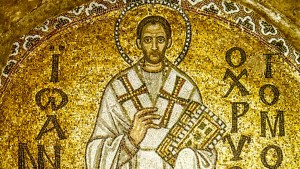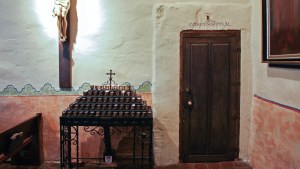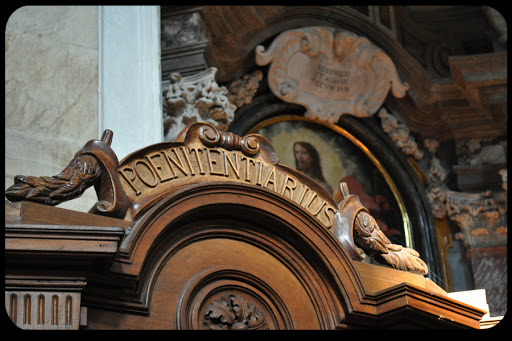Franciscan Father Josep Maria Massana now lives in the convent of the sanctuary of San Antonio de Padua in Barcelona. But, before that, he lived for years in African Franciscan Missions in Burundi, Malawi, and Kenya.
In those African countries, he explains, people go to confession far more frequently than in other latitudes. The reason seems to be quite simple: “Africans are quite straightforward, have clear minds and simple, sincere thoughts.”
But what about the faithful in “developed” countries?
“Well, first of all, people seem to be afraid — perhaps unconsciously — to look at themselves. Confession is like a mirror; we stand before it to see who we are, how we are doing.”
“One thing to keep in mind,” Father Massana explains, “is that confession is made before God. In confession, He sees us just as we are, squanders all his love, his tenderness, and his mercy. That is what the sacrament of Penance is about. In this sacrament, God talks to you. It is almost like he’s telling you ‘come as you are, I don’t care; I love you. I have always loved you.’”

Read more:
Do you hate confessing your sins to a priest? Let this motivate you
But there is another reason why African Catholics approach confession more frequently than most Catholics elsewhere, Father Massana says: “In most African countries, priests are not always available. We have to set clear and precise schedules to make confession possible and available.”
In the African case, letting people know when there would be a priest available for confession encourages people to set some time apart and plan ahead so that they can participate in the sacrament. “We priests must let people know we are indeed available. Otherwise, it might be difficult for the faithful to be looking around for a priest who might hear his or her confession. For me, one of the best things about the priesthood is confession. It is a fabulous apostolate! It is the apostolate of mercy!”
“There are people who take refuge,” Father Massana adds, “in community confessions. There are men and women who find it easier to go to communal penitential ceremonies. We cannot disregard the value this practice still has -God only knows- for the men and women who attend these penitential acts. God takes advantage of any crack in the soul of the faithful, to touch their hearts. God’s mercy is infinitely resourceful!”

Read more:
I know we encounter Christ in confession, but I wasn’t expecting THIS!
“Personally, I think that the close human exchange; a simple word of advice; a word of encouragement; the guidance given by the priest in the confessional indeed helps building the faithful’s moral, ethical and religious conscience,” Father Massana affirms.
Father Massana is absolutely clear about one thing: “Africans go to confession to say things as they are, and that’s it. They are absolutely free of any kind of complexes. They go straight to the point. I have celebrated thousands of confessions there; believe me.”
Not only in confession, but rather in the overall practice of the sacraments “Africans are simpler. They are Christians, and that’s the end of the discussion,” says Father Massana. “They do not have any need for elaborate and convoluted reasoning regarding their being Christians. For them, it’s a simple, natural, straightforward fact. That is why now missionaries from Africa and Latin America are coming to evangelize the developed countries, and not the other way around.”
“I compare it with hunger,” Massana says. “If you offer food to someone who’s a hungry person, that person will eat at ease, but if you try to feed someone who doesn’t really want to eat, or who doesn’t know what he’s craving for (which is our case), then everything will be much more difficult. The same goes for spiritual nourishment!”
Read more:
Do we have a subconscious idea that Africa exists to be exploited?

